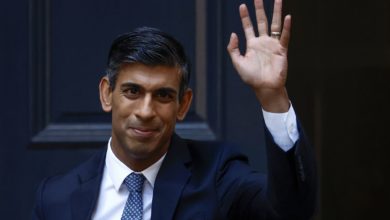The Employees Provident Fund (EPF) recorded a gross investment income of RM12.16 billion for the first quarter ended March 31, 2020, in what has been an exceptionally challenging period due to the Covid-19 pandemic.
EPF chief executive officer Tunku Alizakri Alias said the pandemic had a massive impact on an unprepared world, with lives being forever transformed and economies crashing to unprecedented levels.
“This happened on the back of an already weak global environment characterised by extremely low oil prices and market volatility from uncertain and unpredictable geopolitical issues ongoing since 2019,” he said in a statement today.
Tunku Alizakri said fixed income instruments contributed RM4.87 billion to gross income while real estate and infrastructure, as well as money market instruments, contributed RM0.43 billion and RM0.54 billion respectively.
Equities registered RM6.32 billion, or 52 per cent of total gross income.
“After taking into consideration the write-down on listed equities, a prudent practice by the EPF in ensuring that its long-term investment portfolio remains healthy, net investment income came in at RM7.50 billion,” he said.
He said all asset classes were severely affected, particularly equities which suffered steep declines with the global markets going down as much as 32 per cent, while the local FBM KLCI dropped by 15 per cent as of March 31, 2020.
“The EPF was not spared from the impact of Covid-19 and we recorded marked declines in the performance of our investment assets.
“Although we expect continued market volatility, we have also recorded some soft recoveries in various markets since April,” he added.
Tunku Alizakri said as a long-term provident fund with a global investment footprint, the EPF always employs strict discipline in all its investment decisions, guided by a long-term strategy which ensures that it remained cautious and not make rash decisions based on short term market reactions.
“Hence, we are well-positioned to not only ride out the current volatility but also to take advantage of the declines in valuations of fundamentally strong assets,” he said.
He also added that the EPF is making the most out of the current headwinds in global markets with its continued investment presence in overseas markets, which makes up 28.8 per cent of the fund’s total investment assets.
“Thanks to the EPF’s Strategic Asset Allocation (SAA), the fund managed to outperform many equity funds despite the market downturn, as the flight to safer assets such as bonds have boosted its fixed income returns and provided a cushion from the decline in equity prices.
“EPF’s SAA allocates 54 per cent to Fixed Income Instruments, 36 per cent to equities, six per cent to real estate and infrastructure and four per cent to money market Instruments as a reflection of its long-term goals to ensure prudence and prevent overreactions to market movements,” he said.
Against the backdrop of the pandemic, the EPF swiftly adapted its services and products to balance the immediate and real cash-flow needs of members while fulfilling its mandate to protect their future retirement savings.
Tunku Alizakri said, “while we still do not know how long the pandemic will last, nor the full extent of the economic fall-out, we believe the situation will eventually stabilise.
“Still, it is critical that we learn our lessons and adapt accordingly so that we can take advantage of the opportunities the Covid-19 crisis has presented. We must redesign our global infrastructures as well as economic and social models for a better future for all of us.” — BERNAMA




